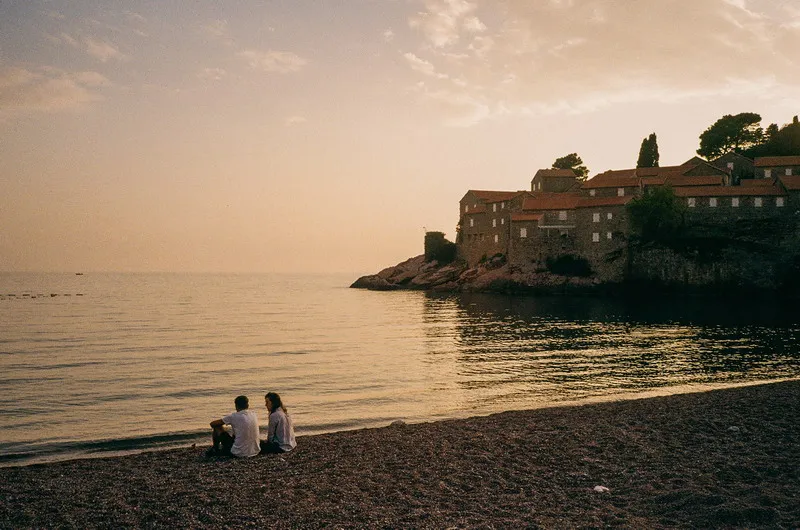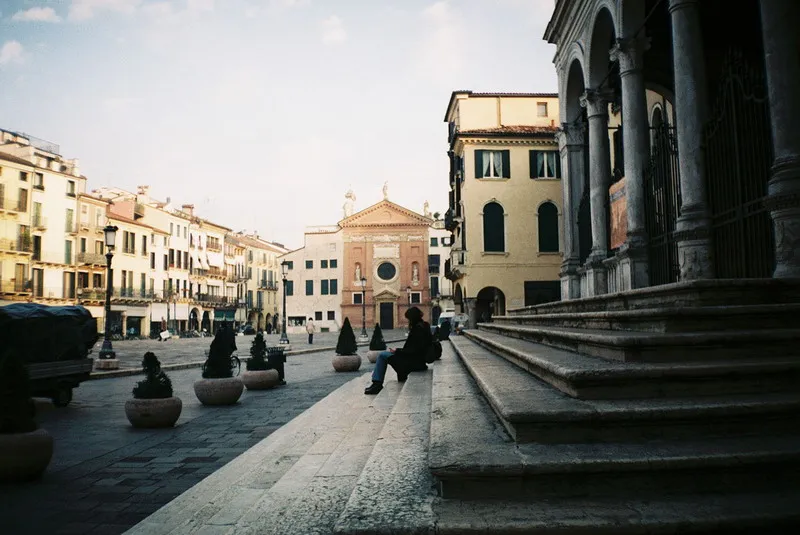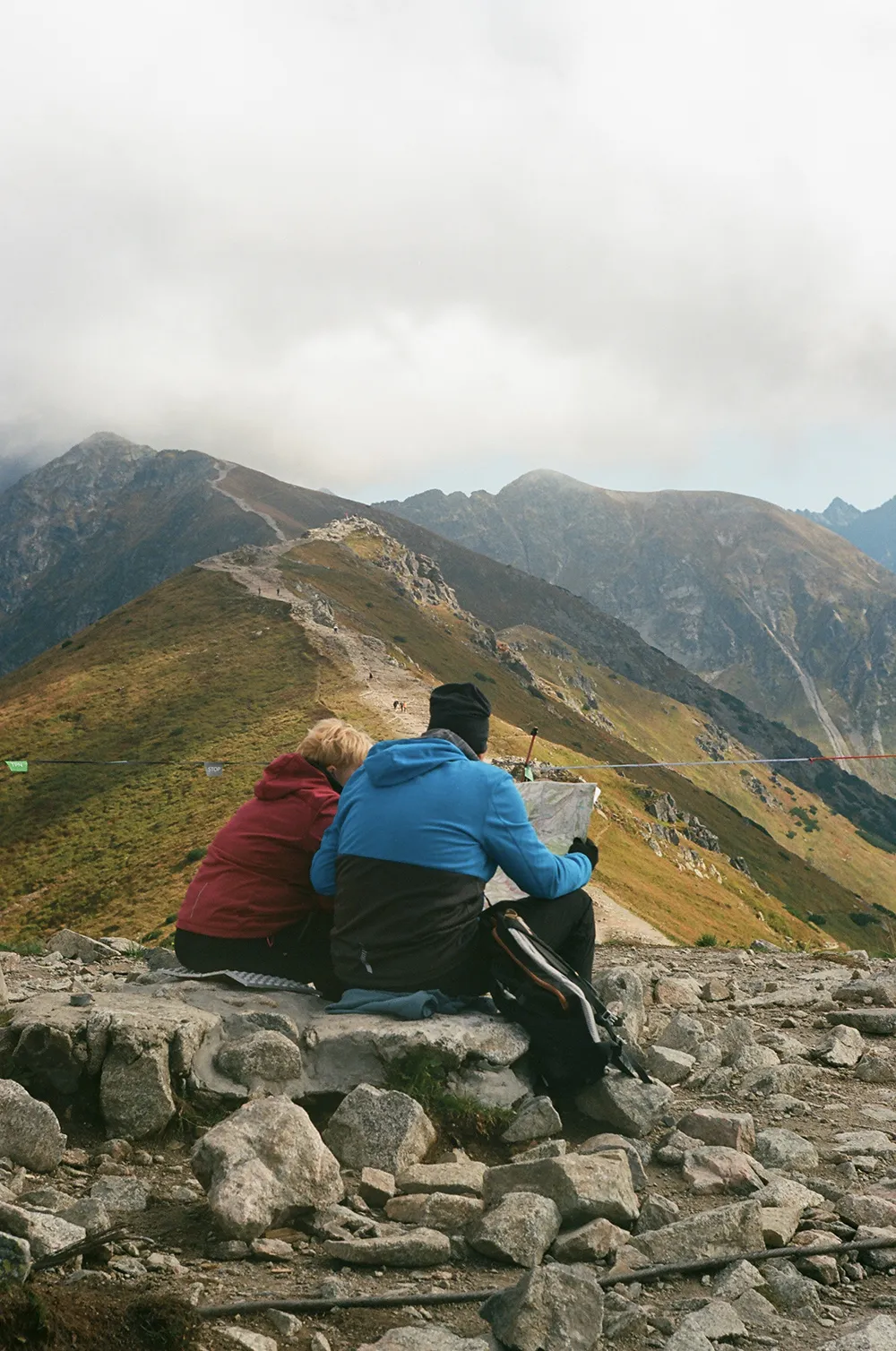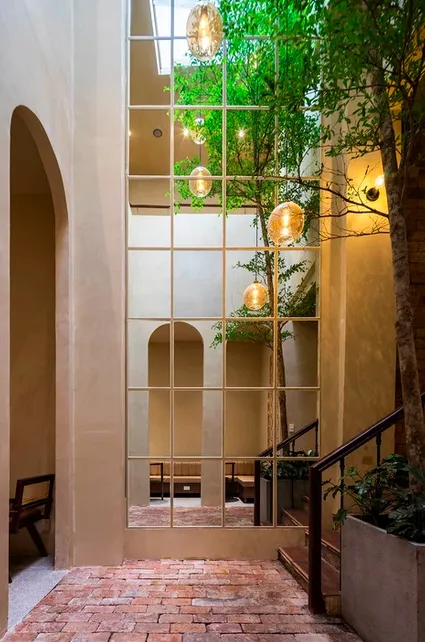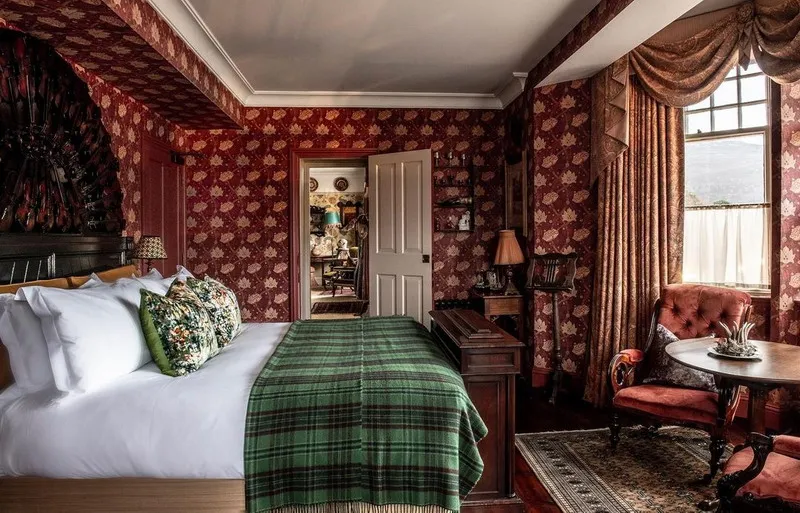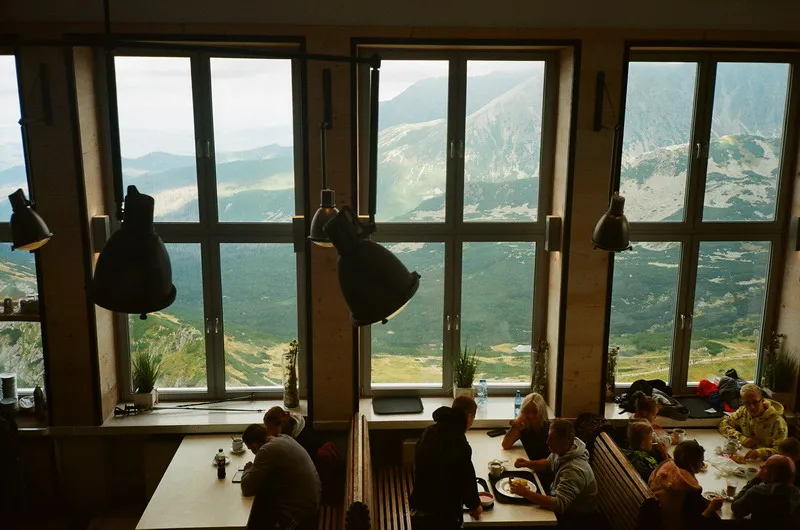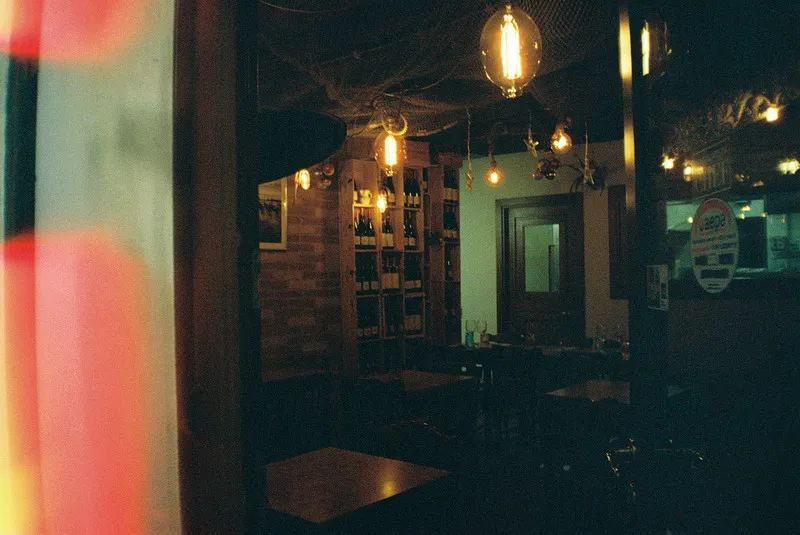Experts say that international travel will reach pre-pandemic levels in 2025. Coronavirus restrictions will be a thing of the past, so agencies, carriers and hoteliers will be able to relax and turn a profit – at least for a while. However, while travel was paused, the world did not stand still. The demands of travelers have changed. The meanings and services that travel industry figures could offer them changed. Condé Nast Traveler magazine talked about the main travel trends of 2025, and we took notes on the most interesting ones.
Hybrid trips
We talked about slow travel four years ago, but this trend is still in the swing stage. Yes, changing habits is not a quick thing. However, more and more often, travelers show respect for Mother Earth and prefer a train ride to a short flight. Travel operators encourage this decision and suggest looking at alternative, greener routes as an opportunity for an alternative adventure. For example, the British operator Byway creates routes without a single flight, combining trains, buses, ferries, and recommends small hotels to clients that work for the benefit of local communities.
Travelers who prefer to travel by individual transport can also be more environmentally friendly: progressive rental services equip their fleets with electric vehicles, and in some places they even offer a good selection. Of course, here a nuance arises with route planning – you become dependent on charging stations. But you can, for example, embark on a 1,600-kilometer road trip through technologically advanced Switzerland: on the route Basel – Baden – Zurich – Appenzell you will come across about 300 chargers. And if Tesla finally releases its cyberpunk Cybertruck, then electric drivers will be able to recharge in an open field – thanks to solar panels on the roof.
Travel from locals
Indigenous people often act as such marvelous animals, posing or entertaining tourists for money, portraying “authenticity” for them. However, a trend is emerging where locals play the role of full-fledged participants in the travel services market.
Thus, representatives of the Kuku Yalanji people in Australia have been recognized as the rightful owners of the Daintree National Park in Queensland, and the Bayungu organize tours along the coast of Western Australia – on the lands where their ancestors lived long before any Janszons, Tasmans and Cooks. In Canada, indigenous people offer to stay in their guesthouses located in popular tourist locations. In Uganda, representatives of the oldest ethnic group in central Africa have set up a new village and are running its tourism component themselves. And you can travel through the Peruvian Amazon with the Bonanza Tours company, which was created by the local indigenous people. By choosing services from “real” locals, travelers certainly get a better (and fairer) experience of a new culture.
Lisness
“Lisness” is a word that replaced “Bleisure”. Both lexemes combine business and leisure, but it is fundamentally important which of the components comes to the fore. If before the COVID-19 pandemic, business travelers, as a rule, first resolved work issues, and left museums, theaters, and parks for a couple of days at the end of the trip, now people plan trips for longer and spend ¾ of their time on leisure. Flexible schedules and remote work allow you to plan your vacation interspersed with work.
Hotels and tour operators are adapting to these travelers and digital nomads, providing them with fast and stable Internet, as well as adapting services to the desire of guests to interact with people in different time zones.
Following the characters from your favorite shows
During the pandemic, people have become even more addicted to their “black mirrors” and the serial needle has only penetrated deeper into their hearts. Experts are confident that in 2025 we will actively travel to the places where Netflix, HBO and others filmed their shows.
Paris does not need additional advertising, but bookings in this direction have increased with the release of the next season of “Emily in Paris.” Many people suddenly wanted to go to Sicily after immersing themselves in the world of the heroes of “The White Lotus” with the brilliant Jennifer Coolidge at the head. And British Bath has experienced a surge of interest thanks to “Bridgerton.” According to booking service Expedia, when it comes to choosing destinations today, television is taking precedence over social networks, which dictated fashion just yesterday. ⅔ of service users reported that they had at least thought about going to some place “from the movies.”
Intelligent travel
Adventure lovers stuck at home feel that some opportunities have been irretrievably lost, and now they intend to take everything from travel. Instead of quickly running through the key attractions from the guides, taking a quick Instagram photo, travelers try to delve into the essence of things. Visit a national park not for a day, but for a week (or even volunteer in it), devote a whole day to the museum of a local history hero, attend a master class at a local eco-party, go on an urban excursion – something like this might look like the plan of a person who sees travel opportunities for personal growth.
Transformational retreats
The trend for spiritual upgrading did not appear yesterday, but it was after the pandemic that it began to shine with new colors. Having somehow satisfied the basic needs for safety and social interaction, which have subsided due to quarantines, people strive to jump to the very top of Maslow’s pyramid – where the need for personal self-development and self-realization is located. Transformational retreats of all kinds are supposed to facilitate this process. There is an option for any request: patching up your mentality, finding the limits of your own body’s capabilities, or even assigning yourself a new meaning in life. The main thing, of course, is that everything does not go according to the script of the series “Nine Complete Strangers” with Nicole Kidman.
However, there is also a trend for psychedelic immersions. In some countries, it is legally permitted to use various consciousness expanders for psychotherapeutic purposes, and there are already offers on the market to heal from mental trauma using “magic mushrooms” under the careful supervision of a specialist.
Silence
Of course, the practice of solitude was not invented in 2025, but quarantines definitely reminded people of how wonderful it is sometimes to be in an environment where the noise level does not exceed 20 decibels, which is equivalent to the rustling of book pages. Representatives of The Quiet Parks consider silence to be an “endangered species” and reasonably believe that it needs to be protected. This grassroots organization identifies and rewards parks, trails, preserves and urban spaces that can offer the traveler extended periods of natural quiet. In such places you can relieve stress and listen to your own heart. Participants in the initiative organize excursions to some of these heavenly spaces – of course, not the kind where everyone is making noise and waiting their turn to take a photo with a particularly photogenic tree, but those with meaning, attention to nature and one’s own self.
“Sleepy tourism”
If earlier we only dreamed about sleep while traveling (in the sense that we did not devote much time and attention to it), today more and more travelers are concerned about, among other things, getting a good night’s sleep while traveling. The hotel industry understands that a pillow-top mattress or a trendy weighted blanket alone won’t win the competition, so its representatives are looking at new products like mattresses that can adapt to a specific person’s body and provide the most correct temperature.
Swedish mattress maker Hästens has gone further – the company has launched Hästens Sleep Spa Hotel, a small boutique hotel in Portugal, where everything – from bed staff to acoustics and books – helps you get a good night’s sleep. And the Belmond Cadogan Hotel even offers a meditation session with a hypnotherapist and sleep expert – his position is called here only as a “sleep concierge”.
By the way, a cafe has recently opened in Ho Chi Minh City, Vietnam, where you can sleep (although you cannot stay there overnight).
Art hotels
Experts note travelers’ interest in small hotels, which awaken their creative impulses. Often these hotels are owned by professional artists and gallerists, as is the case with The Fife Arms, a five-star Scottish hotel. In Marrakech, artist Lrnce opens the doors of her light-filled Riad Rosemary to guests, while in Mallorca, photographer Kate Belm is about to launch Hotel Corazon for those who want the best time in island paradise, in a unique setting and with “highly artistic” cuisine.
3D printed hotels
New hotel brand Habitas is making waves. Of course, before these guys there was no trend for luxury hotels assembled from simple modular structures, partially made by 3D printing.
The first such hotel appeared in Mexico, followed by Saudi Arabia and Costa Rica – the map is expanding, and there is no shortage of people willing to stay in such laconic hotels. What is the secret of success? The fact is that Habitas hotels can be assembled in the most beautiful corners of nature, where previously you could only spend the night with a tent, in “wild” conditions. And if the construction of an ordinary hotel is always a strong intervention in the environment, then the “designers” of Habitas are a sustainable and careful solution. What they sell here is not huge rooms with antique furniture and Swedish breakfasts, but an “inspiring experience.”
Updated all inclusive
Many people are dismissive of the “all inclusive” format: they say, what kind of holiday is this in a paddock for lazy tourists, where you have to have breakfast, lunch and dinner according to a schedule? On the other hand, there are plenty of wealthy travelers in the world who would love to sip their gin and tonic by the pool without worrying about the bills, since everything is already included and understandable! The owners of expensive hotels seized on this idea. For example, at The Gallivant Hotel in England, the price of the stay included breakfast, a “happy hour” of English wine, and a three-course dinner (wood-roasted lamb, noble cheeses, crabs, oysters, everything like that) – and it was a success. Les Maisons de Campagne, a country house in France, literally has everything included, from unlimited beer to yoga classes. The Ikos brand in Mallorca offers its guests a “package” dining experience not only in its restaurants, but also in partner ones, so that guests get a taste of the island and support the local community. None of these options are cheap, but they definitely make the cost of your vacation more transparent.
Ultra-luxurious airport lounges
Airlines are trying to make VIP lounges more and more different from standard lounges. For example, in New York JFK there is a premium champagne bar for special clients of British Airways and American Airlines, and a spa for Air France passengers. At the same time, the number of premium credit card holders and airline loyalty program members is steadily growing, and a luxury lounge, of course, seems less and less luxurious when a bunch of people are crammed into it. Companies are meeting this challenge by improving the criteria for becoming a VIP lounge guest and limiting the number of program participants. At the same time, the level of chic in such rooms is growing.
Cryptocurrency payments
Today we pay for our travel expenses using traditional currency or bonus miles, but thanks to fintech companies like Revolut and Hayvn, it is becoming increasingly easier to convert Bitcoin or Ethereum into new experiences. Insider Intelligence predicts that by the end of 2025, about 3.6 million people will be spending cryptocurrency instead of trading and investing it. And some companies are quite ready for their customers to pay the check with bitcoins. Cryptocurrency is accepted, for example, by Soneva resorts in Thailand and the Maldives, and yachting companies Pelorus and Borrow a Boat. Other market participants will probably follow their example.
Adaptogenic menu
Adaptogens are nutritional supplements that supposedly strengthen the body, stimulate the immune system, help fight stress and relieve fatigue. The effectiveness of adaptogens, attractively packaged for sale in pharmacies, has not been proven, but people tend to believe in the power of Siberian ginseng, holy basil or schisandra berries. The travel industry, of course, does not lose sight of this belief, which is why restaurants and hotel bars are introducing separate adaptogenic items on the menu. Now you can order adaptogenic cocktails, smoothies, lattes or tea, but it seems completely logical to introduce an adaptogenic soup or salad, the ingredients of which will include something relaxing.
